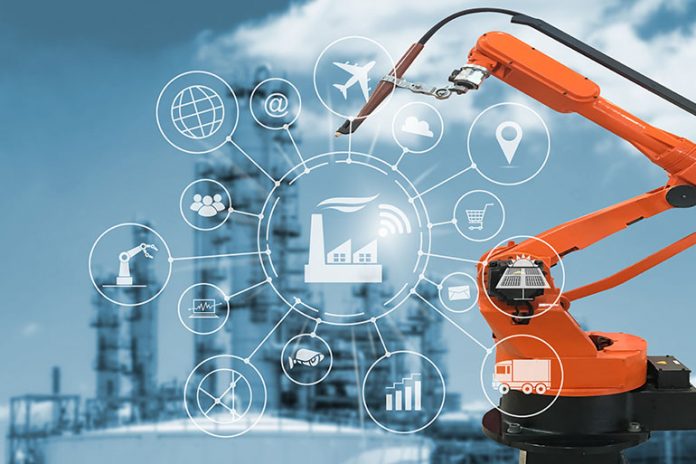The world is changing rapidly to a more digitalized state and the manufacturing industry is no exception to the rule. With the competition getting rougher and more edge-to-edge as various manufacturers compete against each other for better service and quality, they have realized the need for an advantageous factor is necessary whilst moving forward.
That advantageous factor is digitalization and if utilized appropriately, it can change the entire manufacturing industry in one go. According to the EZ Factory, the need for a digitalized production line is real and more relevant than before. Manufacturers can’t afford to stand back and get stuck with old physical methods that only serve to hamper their production value.
As of today’s date, if a manufacturer does not bother digitalizing his production line, supervision and security process, as well as quality control, then they might face adverse losses as their customers shift towards more advanced manufacturers. Thus, the digitalization factor has affected the manufacturing industry considerably.

If you too want to ensure that your manufacturing company stays relevant and superior in today’s industrial market, then you need to up the game by digitalizing everything. Being a part of the Industrial Internet of Things would only help your manufacturing company boost productivity, drive sales, cater to customer needs, and deliver professional quality products to your clients.
If you want to know more about what digitalization is, how it affects the manufacturing industry and what are the benefits, then read the article till the end to clear all your doubts out and adopt digitalization in your company before it’s too late.
What is digitalization and how does it affect the manufacturing industry?

Digitalization is the entire conversion of the process your business works on from physical means to online using digital means like the IIOT (Industrial Internet of Things). This is not to be confused with digitization which basically means the same thing but on a more fundamental level. Digitalization has become the need of the times and if any industry wants to ensure that they are relevant in the future, they have to utilize proper digitalization techniques to do so.
The manufacturing industry has been one of the slowest industries to digitalize itself. As a matter of fact, many industrial companies are still heavily reliant on manual labor, manual checks, and manual security. While this is completely fine and many industries still continue to display excellent results without automation and digital solutions involved, it is also true that more resources are being spent to achieve these results.
Digitalization affects the manufacturing industry on a more profound level than other industries. This is because the manufacturing industry is still heavily reliant on humans and their diligent work. That is why the manufacturing industry is taking its own time to get used to digital solutions to resolve real-world dilemmas.
However, that fact doesn’t stray away from the reality that every industry’s future is going to involve digital intervention one way or the other. While we head towards the future, technology seems to keep updating itself and urge our industries to update themselves as well or they face the risk of gaining market irrelevancy.
Why is digitalization important for manufacturing?

We just talked about how digitalization affects the manufacturing industry, now let’s move on to the bigger picture – why and how exactly is digitalization crucial for the manufacturing industry? Digitalization aims to transform an entire process from its roots to gain a digital aspect and instill itself in every process workflow and production line.
The needs of consumers are ever-growing and they want products that do not deteriorate in quality but only improve over time. This can’t be possible as long as companies employ several workers for a single job that can be easily accessed via digital means and also controlled better. A digitalized manufacturing line eliminates the need for relying on unstable human efficiency and the possibility of human errors, while still allowing your production line to work flawlessly.
Make no mistake – digitalization of the manufacturing industry does not mean the complete elimination of human intervention. Digitalization does not mean complete automation – it means utilization of digital resources to reduce as much as unnecessary workload as possible, ensure faster communication among executives, gain greater security for the company and increase overall productivity.
A company would still require technicians working on the digital line, supervising the quality and production. But the human efforts to achieve that would be drastically minimized and you will thus deliver better products to your consumers – a necessity today since other manufacturers have already upgraded to Industry 4.0 technologies using the IIOT to deliver much better products at a much more productive rate.
Benefits of digitalization

There are various benefits of integrating digitalized solutions into your production frame and work process. These benefits are –
- Reduced costs – When your entire production line and inventory can be digitally accessed, it gives you a much better insight into what components are being used and what components are not. This avoids unnecessary expenditure and helps your budget to fit more vital sectors. Cost reduction is also possible through reuse and digital redesign of waste. To know more on how you can turn waste into assets again click https://www.teakisle.com/.
- Encourages improvement and technological literahttps://www.teakisle.com/cy in your workers – Many industrial workers face an acute lack of technological know-how outside their work line. Digitalizing the manufacturing process allows them to gain technological literacy and improve industrial functioning on their own. Your workers will also be more grateful to you, encouraging a better work culture at your company.
- Stay up-to-date with the latest technology – There are numerous technologies out there that, if utilized appropriately, would only serve to enhance your production prowess. For example, integrating 3D modeling into your production process gives you a much better picture of how your finished product will be and what you can expect. Similarly, there are also machine learning technologies, team communication apps, and analysis software that only serve to improve your company.
- Better efficiency than manual processes – Digitalizing your enterprise offers countless digital solutions that can easily replace manual work. For example, report sharing and analytics software can keep executives and managers on the same page regarding production progress. Additionally, machines can be digitally controlled and improved a lot to do the work of workers in their stead, improving efficiency. Also, running a EQMS system guarantees that every step of the process is within the company guidelines in terms of quality assurance, find out more at: https://www.etq.com/platform/.
Conclusion

The cruciality of digitalization in the manufacturing industry is unparalleled and we hope this article proved to be insightful about it. If it did, please consider following our website for regular updates as it will help us out immensely.









